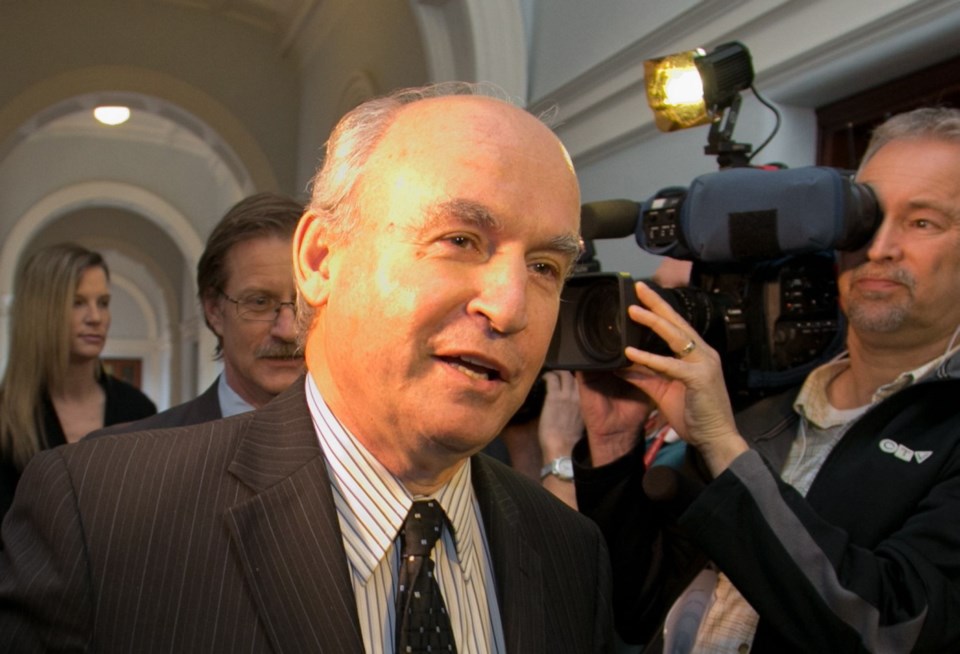 A Toronto mining company with a sizable investment in a northwestern B.C. coal project has been struggling for several years to bring the local First Nations on-side with its vision of an open-pit coal mine in the spectacular wilderness region.
A Toronto mining company with a sizable investment in a northwestern B.C. coal project has been struggling for several years to bring the local First Nations on-side with its vision of an open-pit coal mine in the spectacular wilderness region.
The Tahltan people aren’t opposed to mining in general — they’ve bought in to a different mine elsewhere in the region that promises an employment boost. But Fortune Minerals’ plans for the Sacred Headwaters have prompted blockades, injunctions and hard feelings.
So the B.C. government stepped in Monday and made a move that confirms the new operating environment for resource development in B.C. following the Supreme Court of Canada’s recognition of aboriginal title in the Tsilhqot’in decision last year. B.C. bought back 61 coal licences from the firm for $18.3 million.
That cancels any chance of the mine proceeding in the short-term. It also negates any chance of lawsuits being filed by the company against the government. And it averts any kind of further showdowns between the Tahltan and the mining company in a region that is equal parts mineral motherlode and environmental showcase.
Fortune Minerals and minority partner POSCO Canada will have a 10-year option to re-purchase the licences at the original price, after B.C. and the Tahltan Nation have ironed out a vision of how to proceed.
It’s another indication of the increased clout First Nations have in deciding — if not dictating — when or whether resource projects will proceed in B.C. Energy Minister Bill Bennett said the province or the company can “suggest” during the 10-year period it might be time to start development of the resource (anthracite coal).
But he said the Tahltan “have the leadership role of essentially saying we’re ready to do something with these licences or not.”
He said they have a veto and control over the 61 coal licences for 10 years, during which B.C. will work toward a government-to-government relationship and determine what the Tahltan want to see happen.
Fortune has held the mineral rights for 13 years with the intent to further develop a mine but the government said its development schedule was moving more quickly than discussions with the Tahltan Nation, which prevented progress from being made on a “shared vision.”
Bennett said that shared vision is critically important to everyone. So B.C. put up $18.3 million to avert a showdown and buy everyone some time.
The deal is being accomplished through the B.C. Railway Company, the Crown corporation that became notorious when its sale to CN turned into a long-running breach of trust scandal. Today’s B.C. Railway is a just a shadow of its former self, a holding entity that owns the rail line to Deltaport and has some land.
But it has enough cash on hand to close the deal, so the cost doesn’t have any impact on the government’s fiscal plan. And it has authority through its legislative charter to acquire coal mines and land.
Bennett said the Tahltan were being overwhelmed with mining projects in the area. About a quarter of the major mining plays in B.C. are in northwestern B.C., and most of those proposals are in Tahltan territory.
The region south of Dease Lake is the source of three major rivers, the Skeena, the Nass and the Stikine. The band has endorsed one mining project by vote and Bennett said they don’t want the region to become a park, but want development plans to slow down so their concerns can be addressed.
B.C. Liberals promised during the 2013 election campaign to look at protecting the region in some fashion and Bennett said they’ve been working with the First Nation to try to manage the area differently. “But this project [Fortune’s] always seemed to be in the way.”
He said the government won’t make a habit of such deals.
We’ll see.



